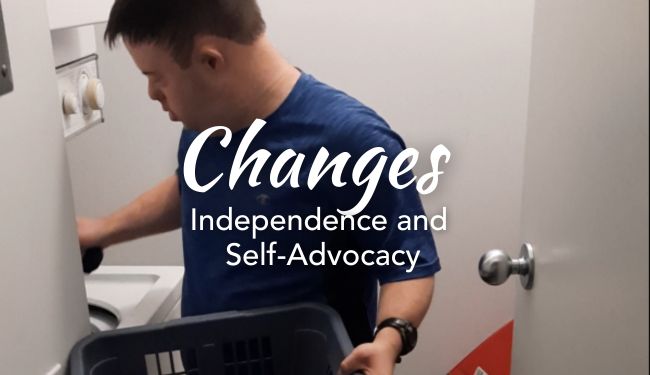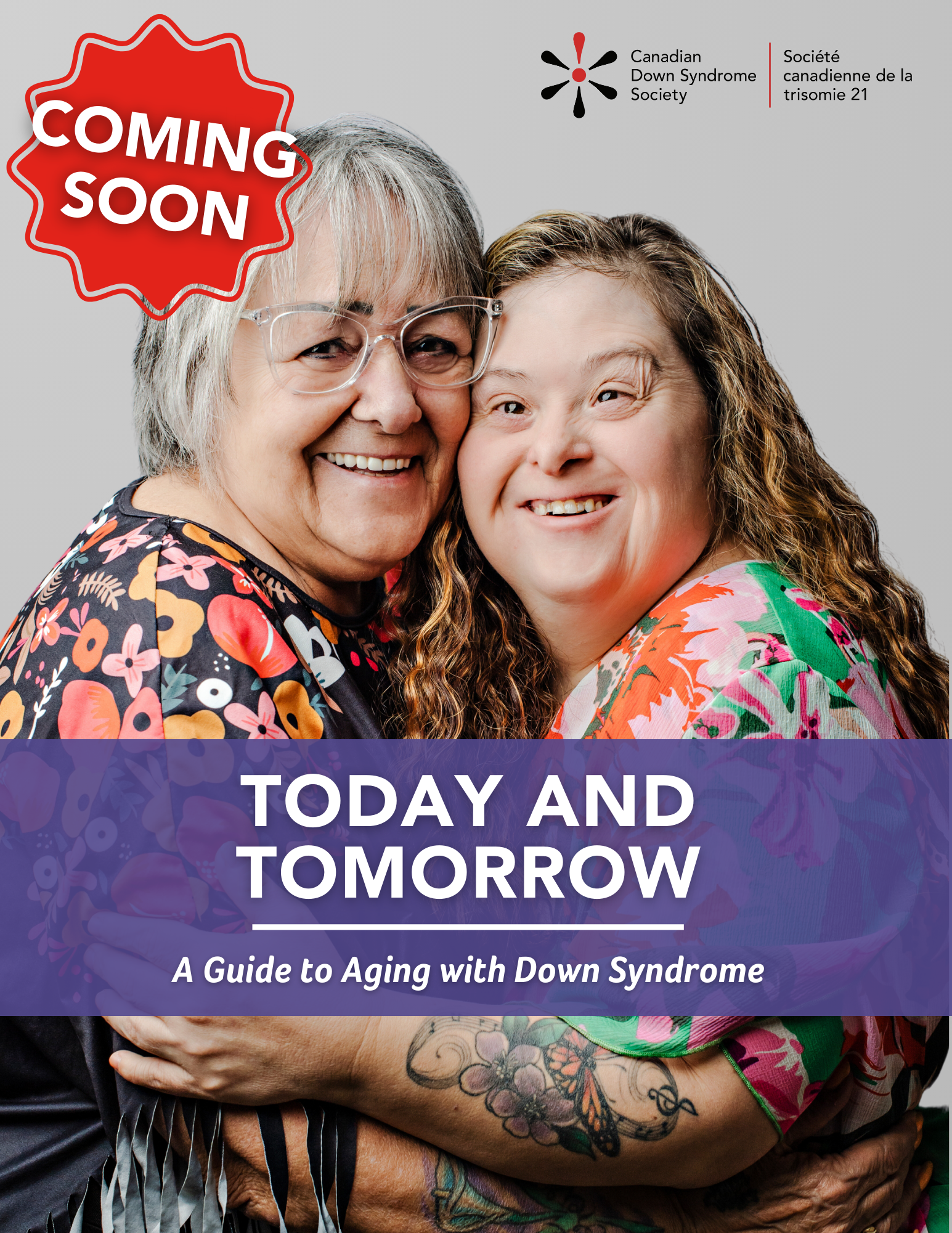Hey everyone, my name is Paul Sawka. I am the Awareness Leader for CDSS. I have been thinking and writing a lot about feelings and changes lately. I really wanted to share these thoughts with the world, so I would like to invite you to read my new blog series about my own emotions and changes as I get older.
Changes: Exploring Emotions and Aging
- Part 1: Dealing with Grief
- Part 2: Sibling Relationships
- Part 3: Selling the Family Home
- Part 4: Independence and Advocating for Myself
- Part 5: Holiday Traditions with Family and Friends
- Part 6: Loving Relationships
- Part 7: Shaking Off the Winter Blues
- Part 8: Making My Own Decisions
Living Independently
I have been living with a supportive roommate for about ten years. I wanted to move out when I saw my sister live on her own and my older friend with Down syndrome also moved out on his own. My parents agreed that I could live independently if I developed some much-needed skills.
First, I had to get a job and keep it. This was necessary so that I could pay the rent. While working, I had to be able to get myself up in the morning using my alarm clock. I had to get myself dressed and ready to go. I learned how to make my own breakfast and lunch. I poached my own eggs and made my own toast. I learned to watch the clock and make sure that I got out the door in time to catch my bus. I learned to travel by bus to get to my job. Transit training helped me do this.
I needed to learn to clean my own room. I vacuumed and dusted. I learned to clean a bathroom including the toilet, sink and shower. I tried making a few simple meals myself. I can put things in the oven to heat up and use a microwave. I learned to meal-plan for grocery shopping. We make a list so we know what groceries are needed. I now shop with my roommate once a week. I clear the table and load the dishwasher. I learned to do my own laundry. You must know how to work the washing machine and the dryer. I needed to learn how to make and change my own bed and towels. I take out the garbage and the recycling.

Supportive Roommates
Once I had demonstrated that I could do all these things, my parents and I found a great condo very close to where they live. It had two bedrooms and two bathrooms, so it was perfect for me and a roommate. Now the tricky part was finding a suitable roommate. We asked everyone that we knew and were successful in finding someone right away.
I have had 5 roommates in 10 years. They are with me for about 2 years before they move on. The nice part about having my own place is that the roommate moves on but I stay where I am. During the 10 years, I have moved within my own condo complex. Instead of renting, I had saved enough money to buy my own place. I enjoy the independence of living with a supportive roommate. I talk to my parents on the phone often and see them a couple of times a week. I also go over for Sunday dinners.
My roommate and I meet with my parents once a month to go over our monthly calendar and schedules for the month ahead. If there are any problems, we discuss them then and find a solution. I appreciate all the help and support that I get from my roommate and from my parents.
The Importance of Independence
Independence means to look after yourself and to make sure that you are staying very clean by making sure that the bathrooms and bedrooms are very clean and by taking the garbage and recycling out and vacuuming and taking care of my space.
I think that having my independence is very important to me because having that ability really helps me to advocate for myself and to speak out for others. It has helped me to be more involved in all the organizations that I have been a part of and it has given me many opportunities to contribute my gifts and expressions to the world.
Self-Advocacy
Being a self-advocate means that I am able to share my voice with the world and speak up for myself in the work that I do and in all parts of my life. I had to advocate for myself because I knew that I had goals and things that I wanted in life, like my independence. I was luckily very supported by my parents in learning to advocate for myself and work towards my goals. I have learned a lot from my role as the Awareness Leader at the Canadian Down Syndrome Society and through the responsibility of having my own condo and living with a roommate.
I got involved in my self-advocacy work by going to school and eventually getting my job as the Awareness Leader at the Canadian Down Syndrome Society and I have now been involved with that work for ten long years. I really think that others can get involved by going to a job interview so that they can get into a job and they will have to be hired to do the job by the boss so they can really can follow in my footsteps and that is my role as the Awareness Leader to everyone.
Goals and Accomplishments
The personal accomplishments that I am very proud of are every single medal that I got. Some are my swimming medals and some are my Edgemont Community Baseball medals and some of them are my Special Olympics baseball and curling medals as well. I am more than very proud of myself for getting so very many medals because they are so very special to me and that makes me very happy.
I had a personal goal to achieve a medal in curling and I have been given many medals over the past several years from my sports.
One of my personal goals that I really would like to accomplish is to perform in a real band in a big concert for many people so that I can be heard by everyone.
-
Recommended Resources for Life Skills and Self-Advocacy
- Life Skills, Down Syndrome Resource Foundation
- Activities of Daily Living, Speech Improvement Center
- Planning for Life After School, Down Syndrome Victoria
- Resources by Self-Advocates, NDSS
- Self-Advocacy Guide (Easy Read), Down Syndrome International
- What Self-Advocates Need to Know, CDSS
New Edition of Today and Tomorrow: A Guide to Aging with Down Syndrome
Our team is working hard to bring you a new edition of the trusted resource, Today and Tomorrow: A Guide to Aging with Down Syndrome. This important update will include new health studies, expanded coverage of mental and physical health topics, and more experiences from the community. Help keep these essential resources up-to-date for the caregivers and Canadians with Down syndrome who depend on them. Donate today to support this resource update.

